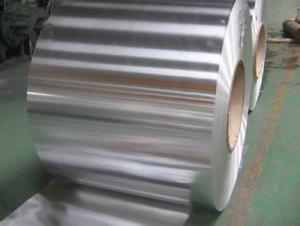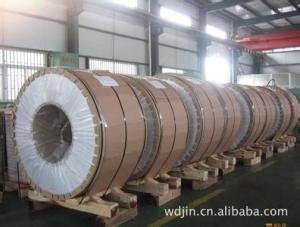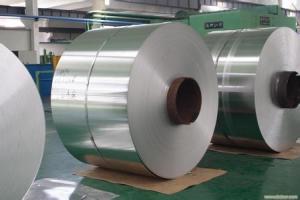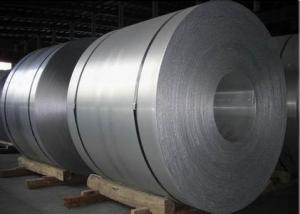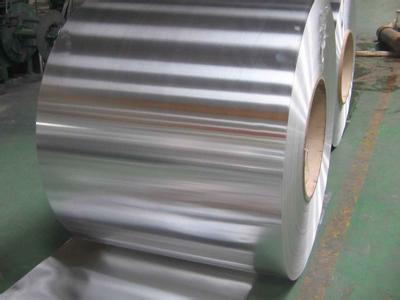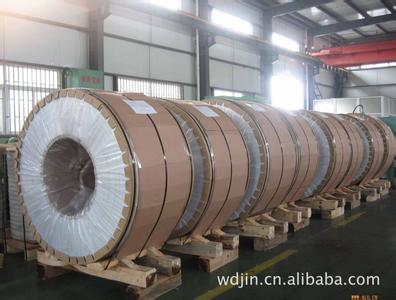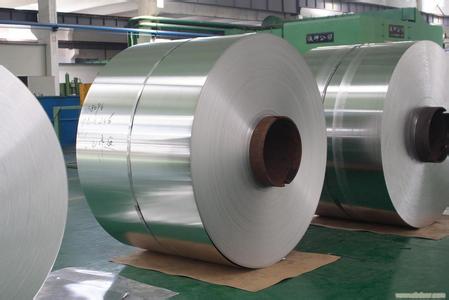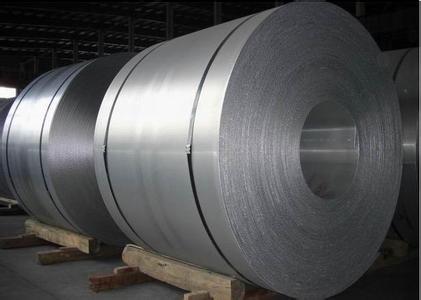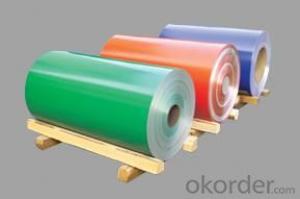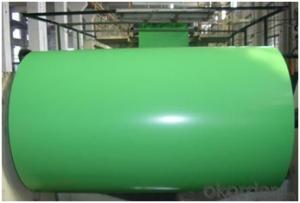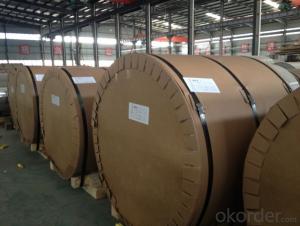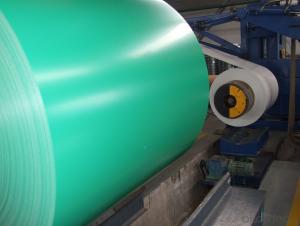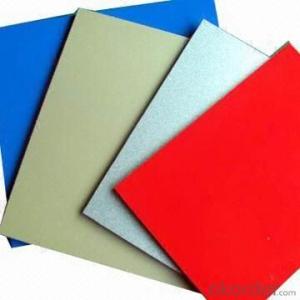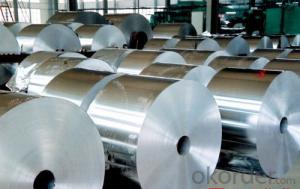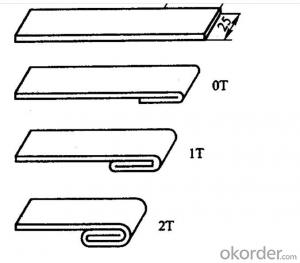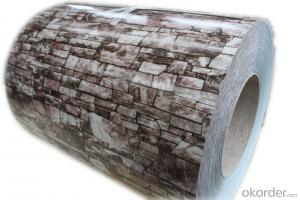High Quality 6063 Aluminum Coil Manufacture for Coated Aluminium Coils for ACP
- Loading Port:
- Shanghai
- Payment Terms:
- TT or LC
- Min Order Qty:
- 5 m.t.
- Supply Capability:
- 100000 m.t./month
OKorder Service Pledge
OKorder Financial Service
You Might Also Like
1.Structure of Coated Aluminium Coils for ACP With High Quality
Coated Aluminium Coils for ACP is processed through the technics of roller coating and baking with precise polyester paints. Its color is glossy and with variety of colors enabling you to choose easily. Chromatic aberration is small, impact resistance is strong and easy to be processed, and all its performance has reached or surpassed the national criteria.
Coated Aluminium Coils for ACP are widely used in indoor and door decoration, ceilings, room surface tiles, corrugated boards, wall panels, advertisement boards, counters, home appliances, decoration in and out of autos and boats.
2. Main Features of Coated Aluminium Coils for ACP With High Quality
• Light Weight
• High Flatness
• Protecting Environment
• Good Weathering
• Colorful
• Recycling
• Saving Energy
• Rustproof
3. Coated Aluminium Coils for ACP With High Quality Images
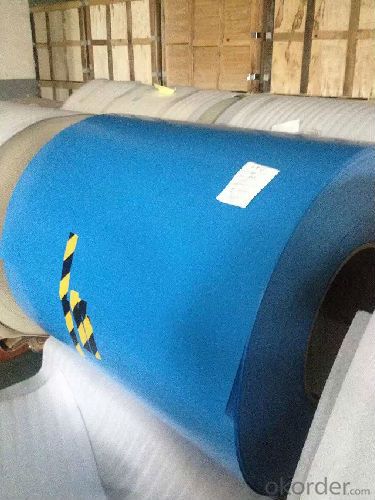
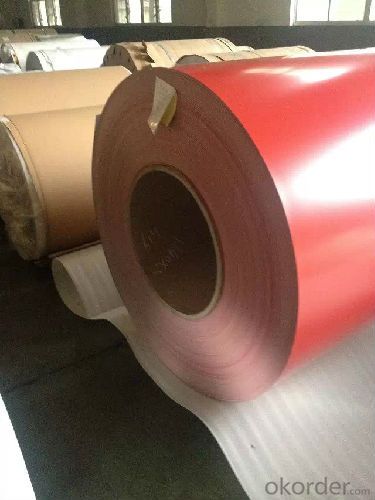
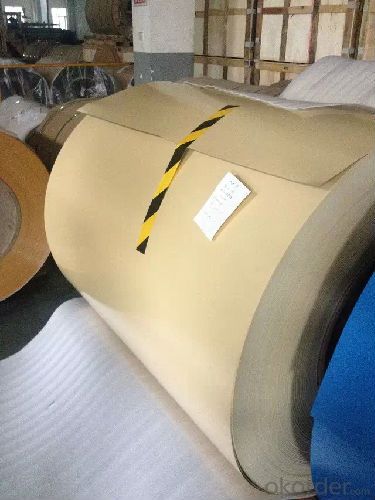
4. Specification of Coated Aluminium Coils for ACP With High Quality
Aluminum Thickness | Coating Thickness | MEK | T- Bend | Impact | Adhesion | Pencil Hardness |
0.3-1.5mm | ≥18μm | ≥100 Times | ≤2T | 50 kg•cm | 0 Grade | ≥2H |
0.2-0.28mm | ≥18μm | ≥100 Times | ≤2T | 30kg•cm | 0 Grade | ≥2H |
0.15-0.18mm | ≥18μm | ≥100 Times | ≤3T | 20 kg•cm | 0 Grade | ≥2H |
0.08-0.12mm | ≥16μm | ≥80 Times | ≤4T | 10 kg•cm | ≤1 Grade | ≥2H |
0.022-0.06mm | ≥12μm | ≥50 Times | - | - | ≤1Grade | ≥HB |
5. FAQ
1. Color of Card
PE (polyester) Coating
PE (polyester) coating: Using high molecular polymer as monomer and addition of alkyd, this PE coating method of our color coated aluminum coil is an UV-resistant coating. It can be classified matt and glossy according to coating gloss. The compact molecule structure makes paint surface luster and smooth, which assures good printing on the PE coated aluminum coils surface. With a warranty of 8-10 years for weather resistance, it is specially applied for internal decoration and sign board.
2. Color Match
For custom' color requests, we can deal as following:
a. Supply a physical sample of custom color. A color sample on metal is preferred. If other, it is also acceptable. But the color matching rate may be not good as color on metal.
b. New color sample is usually offered by our paint supplier in 5-7 days, special color should be in 7-10 days.
c. Upon receipt of color sample, please approve in writing as soon as possible. Once you approved, we will arrange purchasing and production.
Note: Color difference maybe occurred in different production batch, so it is suggested all panels are placed in one order for same project. And keep same direction as arrow on protective film when installing to avoid any color difference by vision
3. How long can we receive the product after purchase?
15-20days for general specification and 35days for special specification after receiving the deposit.
- Q: Hey everybody I'm trying to improve the performance of my vintage metal Coleman cooler I just got. To test it I filled it up with water bottles and 5lbs of cubed ice from Stop and Shop and left it in the closet with the dorm's AC set to 65. When I got back 28 hours later the ice was completely melted. The water still kept the drinks cool for several days after that, but I'm frustrated that the ice melted in a single day.
- It's perfect if you are just starting out or if you're a seasoned carpenter. you will like it for sure ! It has almost 20.000 woodworking plans and you have a CAD/DWG software to view and edit the plans. You have step-by-step instructions with photos and high quality blueprints and schematics. If you are a beginner this is the easiest way to start your woodworking projects, and if you already have experience you can anyway find a lot of interesting ideas!
- Q: What influence do aluminum coils have on the welding process?
- <p>Aluminum coils can significantly affect welding work due to their unique properties. Aluminum has a high thermal conductivity, which requires more heat input to achieve the necessary temperature for welding. It also has a high oxide layer that can interfere with the welding process, leading to porosity and poor joint strength if not properly managed. Additionally, aluminum's low melting point can cause challenges in maintaining the correct temperature during welding. Specialized techniques, such as TIG (Tungsten Inert Gas) welding, and the use of appropriate filler materials are often necessary to ensure a successful weld. Proper cleaning and preparation of the aluminum surface are also crucial to prevent contamination and ensure a strong, defect-free weld.</p>
- Q: Can aluminum coils be used in the production of aluminum composite walls?
- Yes, aluminum coils can be used in the production of aluminum composite walls. Aluminum composite walls are typically made by sandwiching a layer of polyethylene between two aluminum sheets. The aluminum coils are first processed to form flat aluminum sheets, which are then used as the outer layers of the composite wall. The coils are unrolled and flattened during the manufacturing process to create the desired width and thickness of the aluminum sheets. These aluminum sheets offer excellent strength, durability, and weather resistance, making them ideal for use in aluminum composite walls. Additionally, the use of aluminum coils allows for efficient and cost-effective production, as they can be easily processed and formed into the required dimensions.
- Q: How much fluorocarbon and polyester paint should be used in production of aluminum coil and aluminum-plastic panel?
- In theory, one kilogram paint can spray 6 square kilometers for your required thickness. Then you can calculate the total areas.
- Q: How do aluminum coils compare to steel coils?
- The characteristics of aluminum coils and steel coils distinguish them in terms of strength, weight, corrosion resistance, and cost. Strength-wise, steel coils generally exhibit a higher tensile strength compared to aluminum coils. This means that steel coils can endure greater stress and pressure without deforming or fracturing. Nonetheless, aluminum coils retain sufficient strength for various applications and can be reinforced or designed for specific purposes. Weight plays a significant role in the comparison between aluminum and steel coils. Aluminum is a lightweight metal, weighing approximately one-third of steel. This lightweight property grants aluminum coils an advantage in applications where reducing weight is crucial, such as in transportation industries or aerospace. Regarding corrosion resistance, aluminum coils surpass steel coils. Aluminum naturally develops a protective oxide layer that prevents further corrosion. Conversely, steel is prone to rust and necessitates additional coating or treatment to enhance its corrosion resistance. This makes aluminum coils the preferred choice in coastal or humid environments where corrosion poses a significant concern. Cost is another vital factor to consider. Aluminum coils often entail a higher initial cost than steel coils due to the elevated cost of raw materials and manufacturing processes. Nevertheless, the overall cost may fluctuate depending on variables like transportation, maintenance, and lifespan. Aluminum coils tend to have lower maintenance costs and longer lifespans due to their corrosion resistance, which can offset the initial investment in the long run. In conclusion, aluminum coils provide several advantages over steel coils, such as lower weight, superior corrosion resistance, and potential long-term cost savings. However, steel coils still boast higher tensile strength and may be the preferred choice in applications that require maximum strength or have a restricted budget. Ultimately, the selection between aluminum and steel coils hinges on the specific requirements and considerations of the intended application.
- Q: Can aluminum coils, which are typically used for industrial purposes, be utilized for baking pizza?
- <p>Aluminum coils, commonly used in industrial applications, are not recommended for baking pizza. While aluminum is a good conductor of heat and can be used in baking, aluminum coils are often too thick and not designed for direct contact with food. They may also contain coatings or treatments unsuitable for food. Instead, use aluminum foil or a pizza stone designed for baking to ensure food safety and even heat distribution.</p>
- Q: This question asks for the method to calculate the weight of an aluminum coil given its size.
- <p>To calculate the weight of an aluminum coil, you need to know its dimensions and the density of aluminum. The formula to calculate the weight is: Weight = Volume 脳 Density. First, determine the volume of the coil by multiplying its length (L), width (W), and thickness (T): Volume = L 脳 W 脳 T. The density of aluminum is approximately 2.7 grams per cubic centimeter (g/cm鲁). Convert the volume to cubic centimeters if it's not already. Then, multiply the volume by the density to get the weight in grams. To convert grams to kilograms, divide by 1000. This will give you the weight of the aluminum coil.</p>
- Q: What are the common joining techniques used for aluminum coils?
- Aluminum coils can be joined using various techniques, including welding, adhesive bonding, mechanical fastening, and soldering. When it comes to joining aluminum coils, welding is a widely used technique. Different welding methods, such as gas tungsten arc welding (GTAW or TIG), gas metal arc welding (GMAW or MIG), and laser welding, can be employed. These methods fuse the aluminum coils together, providing a strong and durable joint that ensures structural integrity. Another technique for joining aluminum coils is adhesive bonding. This method involves applying a suitable adhesive or bonding agent to join the coils. Adhesive bonding offers excellent flexibility, allowing for the joining of dissimilar materials and creating a smooth, aesthetically pleasing surface. It also distributes stress evenly across the joint, reducing the risk of fatigue failure. Mechanical fastening is another option for joining aluminum coils. This technique utilizes mechanical elements like bolts, screws, rivets, or clips. It is a relatively simple and cost-effective method, allowing for easy disassembly if needed. Mechanical fasteners provide good strength and stability, although periodic maintenance may be required to prevent loosening over time. Soldering is a low-temperature alloy-based technique for joining aluminum coils. It involves heating the solder to its melting point and allowing it to flow into the joint, creating a strong bond. Soldering is commonly used for electrical connections or delicate applications where excessive heat can damage the aluminum. However, it may not offer the same level of strength as welding or mechanical fastening. The choice of joining technique for aluminum coils depends on various factors, including specific application requirements, desired strength, appearance, and cost considerations.
- Q: Why does aluminum foil barely get hot in the oven, but catch fire in the microwave?
- The okorder /
- Q: How are aluminum coils cut to length?
- The process of cutting aluminum coils to length is typically done using two methods: shearing and slitting. Shearing involves the use of sharp blades to cut the coil into shorter lengths, which is commonly used for thicker coils. On the other hand, slitting is a process where the coil is passed through rotating circular knives to cut it into narrower strips of the desired width, often used for thinner coils. Both shearing and slitting can be done manually or automatically, depending on the scale of production and project requirements. Large-scale production usually utilizes automated cutting machines for their higher precision and faster cutting speeds. It is important to note that during the cutting process, the coil is usually uncoiled and guided through the cutting machine. Once the desired length or width is achieved, the cut aluminum pieces are collected, bundled, and prepared for further processing or distribution.
Send your message to us
High Quality 6063 Aluminum Coil Manufacture for Coated Aluminium Coils for ACP
- Loading Port:
- Shanghai
- Payment Terms:
- TT or LC
- Min Order Qty:
- 5 m.t.
- Supply Capability:
- 100000 m.t./month
OKorder Service Pledge
OKorder Financial Service
Similar products
Hot products
Hot Searches
Related keywords
